“The Taste of Things” is not the first film to celebrate the art of cooking, but it easily deserves a seat at the table among the best.
There are films you watch and films you experience, like immersive works of art that move you in ways impossible to describe. It’s often hard to articulate how and why a film transcends the mere act of passive observance to one of mesmeric consumption.
You know it when you see it, nay, when you feel it. Still, as a critic, my job is to put to words an experience that defies articulation.
The Taste of Things is breathtaking in every way imaginable, and I wish I could just leave it at that. But you deserve more, and a film this sublime demands more.
Originally titled The Pot-au-Feu, this French historical romantic drama is a loose adaptation of the Swiss novel by Marcel Rouff, La Vie et la passion de Dodin-Bouffant, gourmet (The Passionate Epicure). The novel itself was partially inspired by the infamous epicure Jean Anthelme Brillat-Savarin.
Films about the artistry, soul, and, often, sensuality of cooking and food are in vogue now, thanks to superb shows like the multiple Emmy Award-winning The Bear and critically hailed films like The Menu (my mouth still waters when I think about THAT cheeseburger) and, my personal favorite, Pig.
Before that, culinary classics have been delighting audiences for decades.
From Eat Drink Man Woman to Big Night, Babette’s Feast to Chef. From Mexico’s Like Water for Chocolate to France’s Chocolat, also starring the magnificent Juliette Binoche. Even Pixar’s underrated masterpiece, Ratatouille, is a love letter to passionate creation.
Writer-director Anh Hung Tran shows you what it’s like to truly savor a meal, appreciating the multitude of delicately balanced flavors in every bite.
It’s a metaphor for the way great art deserves to be appreciated.
As such, The Taste of Things demands your patience as it slowly simmers until steeped to perfection.
The first forty minutes of the film is an elegantly crafted culinary fete — part splendid performance, part religious ceremony.
We spend the entirety of the opening salvo focused exclusively on food and its influence on the lives of its characters. Small bits of exposition and character development are delicately inserted between the balletic preparation of a multi-course feast in the kitchen and the worshipful enjoyment of that meal in the dining room.
In the kitchen, we have Eugénie (Juliette Binoche), the devoted and impossibly talented cook to celebrated gourmet Dodin Bouffant (Benoît Magimel). She’s assisted by two young apprentices, Violette (Galatéa Bellugi) and blossoming protégé Pauline (the spectacular Bonnie Chagneau-Ravoire).
Dodin assists in the kitchen but spends most of his time entertaining his esteemed guests, a small group of fellow intellectuals and gourmands, in the dining room. As dish after mouthwatering dish is lovingly cooked, served, and consumed, Tran explores the nature of cooking as an act of divine offering and dining as a spiritual experience.
The unflappable grace with which Eugénie moves between dishes like a prima ballerina commanding the stage is magnificent and entrancing. She makes it look effortless yet exalted.
In the midst of this dazzling dance, we get the first hint that some darkness threatens to mar the exquisite beauty and perfect happiness of this domicile. Eugénie has a moment of weakness where she nearly faints, inexplicably, but quickly gets back up to continue cooking. It’s brief but foreboding.
The sumptuous opening act culminates with a royal invitation from a prince to attend a special dinner in honor of the “Napoleon of culinary arts” — the nickname given to Dodin.
It’s a haughty, unsatisfying affair, an exercise in overindulgence and mediocrity that inspires Dodin to prepare a meal for the prince that proves less is more in the hands of a true artist.
He goes about creating a meager menu centered around a humble dish of pot-au-feu (echoing the titular stripped-down elegance of the titular dish in Ratatouille), proving genius can be audacious without being ostentatious.
Meanwhile, we learn of the extent of affection felt between Eugénie and Dodin. After twenty years of working together, they’ve developed a deep bond. Dodin is desperate to marry the ethereal Eugénie, but she resists in an effort to maintain her independence.
The duo’s chemistry is palpable and poetic, and that makes sense given the once-real-life couple’s romantic history.
In a scene where Dodin cooks for the ailing Eugénie, it’s such an act of tenderness, love, and devotion. He’s feeding her soul as much as her body. There are Shakespearean sonnets whispered between them with nary a word spoken.
In fact, it’s an especially quiet film that devotes much time to silent or near-silent devotion, as the primary language of the film is food.
Dodin compares the creation of a perfect dish to a composition of an elegant sonata, and much of the film plays out like a symphony of the senses.
Rather than rely on a score to immerse you and manipulate your emotions, the film is boldly scored only by the sounds of nature outside the kitchen and the harmonious concord of cooking — dishes simmering on the stove, the crackling of the fireplace, the gentle clinking of the pots and pans, the popping and sizzling of liquids and perfectly roasted delicacies emerging from the oven.
The cinematography by Jonathan Ricquebourg is as sumptuous as the food – a smorgasbord of sensuality and a bountiful visual feast.
A picnic on the lawn is jaw-droppingly stunning. It’s a living, breathing Renaissance painting of pastoral beauty that evokes Matisse, Monet, and Renoir. A stroll through the woods at sunset, lit by golden hues and punctuated by the sounds of crickets and chirping birds, is nothing short of exquisite.
Binoche’s nude body, shown briefly and non-salaciously from behind, is a work of art. She’s not shot in a male gazey way but rather framed like a Botticelli painting — emphasizing the connection between food and sensualism.
Watching The Taste of Things, which made a splash at the Cannes Film Festival, where Hung won the Best Director Award, reminded me of how I felt watching Bryan Fuller’s opus Hannibal.
Mads Mikkelsen’s Lecter may be a cannibal, but Mon Dieu (my God), what I wouldn’t give to be invited to his table for just one exquisite meal — for just one taste of that glorious artistry and passionate devotion to creation.
It’s a bold recommendation: a subtitled, two-hour and sixteen-minute, methodically paced film about love and food. That certainly won’t suit everyone’s palate.
Yet, for those craving the taste of something artful, unexpected, and unquestionably sublime, The Taste of Things is as gourmet as cinema gets.
It’s a cinematic chef’s kiss that deserves to be savored.


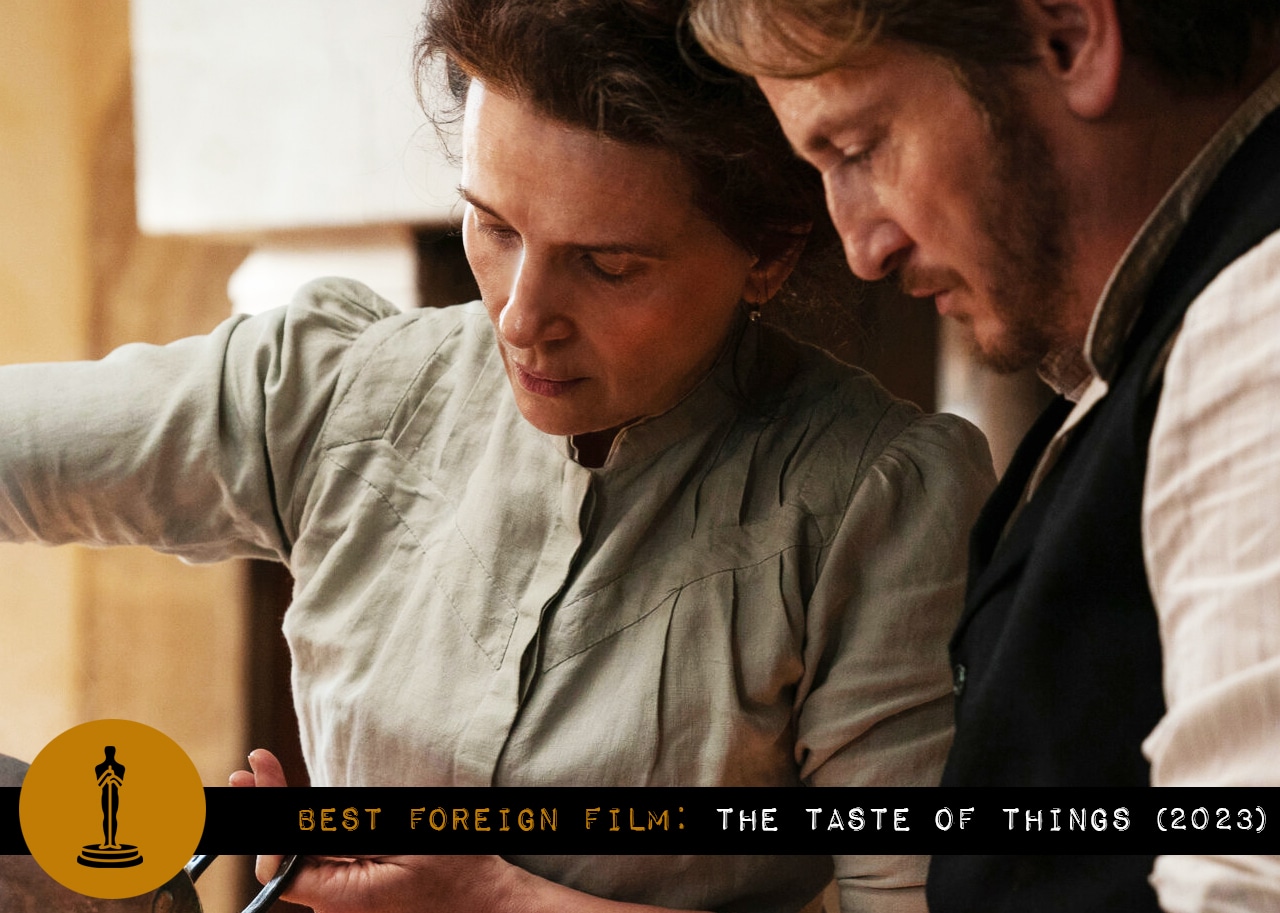
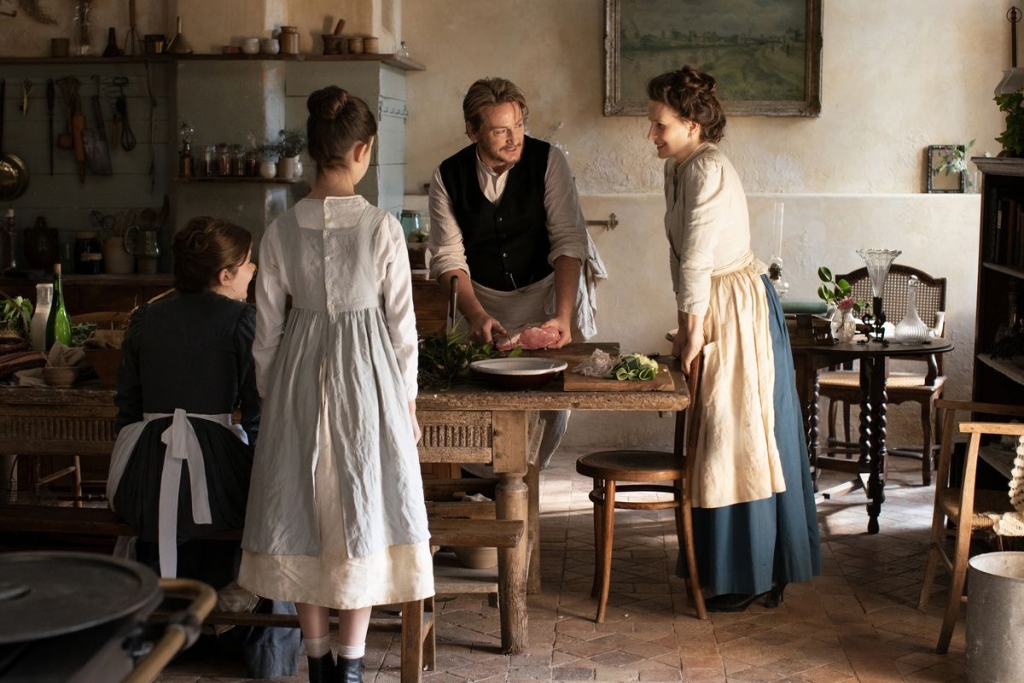
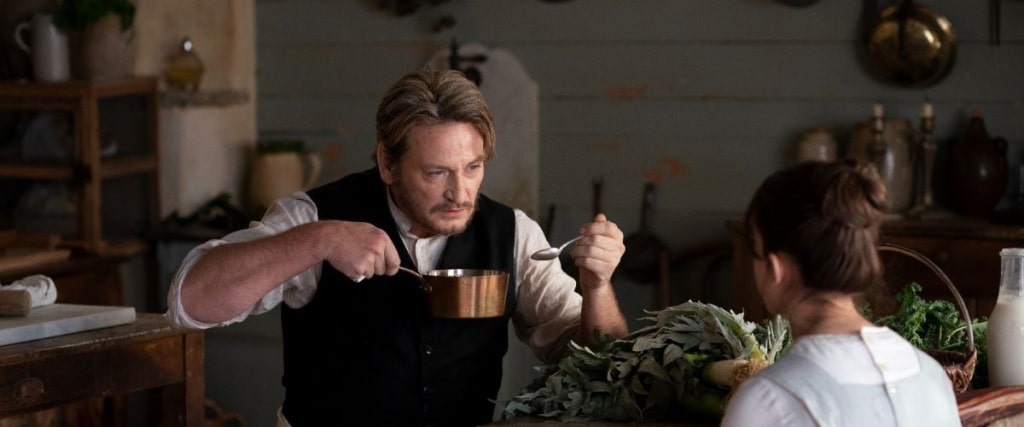
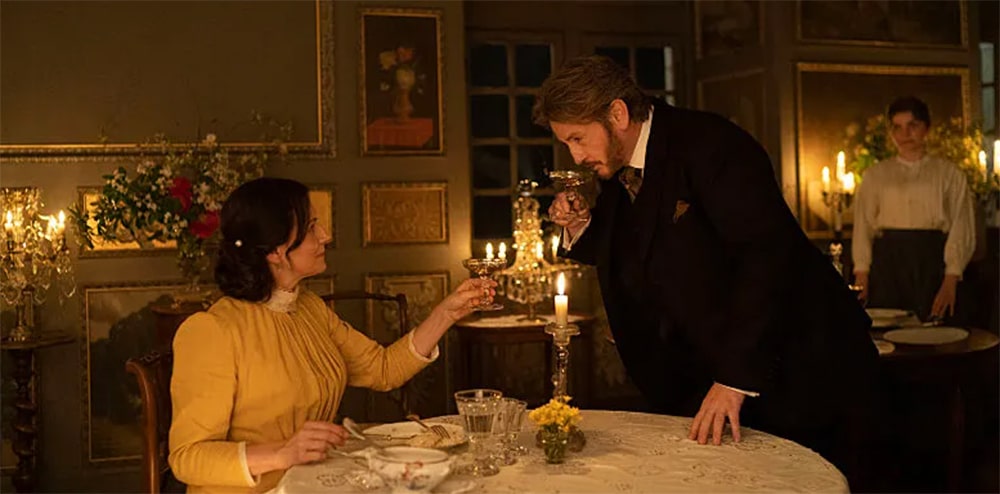
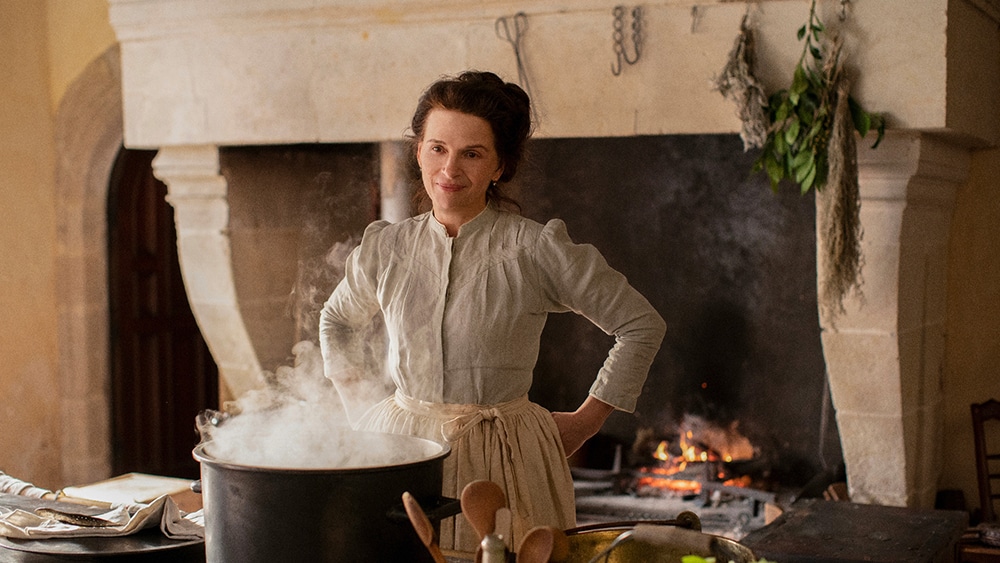

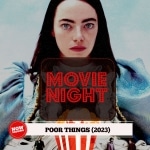










Follow Us!